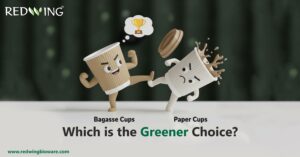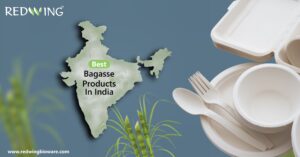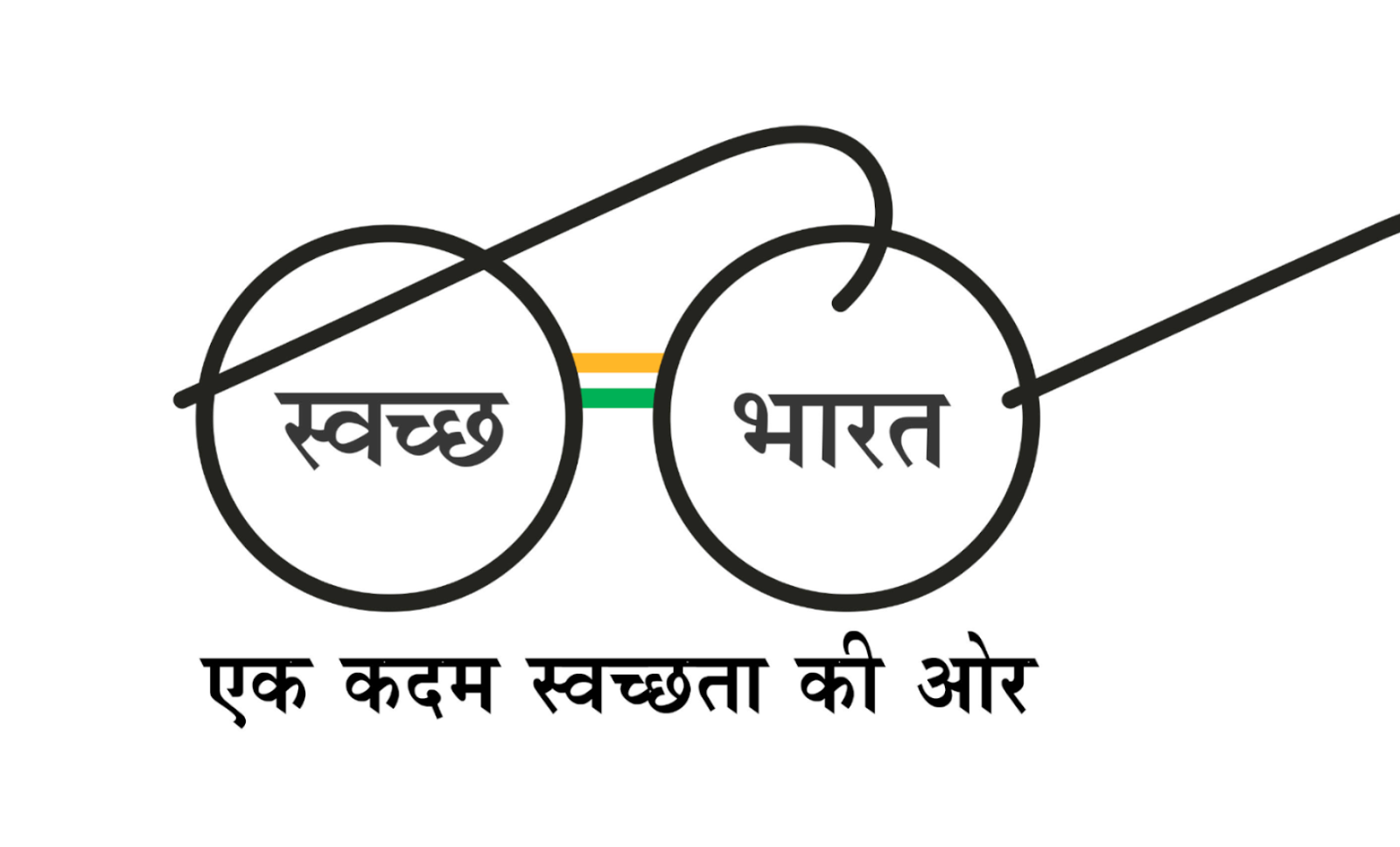Are you looking for quick yet effective strategies to protect the environment? Planet-safe living has become a popular choice for most people, with terms like sustainable and waste-free living no longer being an understatement. Additionally, adopting recyclable materials can have some significant health benefits in addition to the obvious sustainability benefits! In light of this, the following are the main health advantages of utilising biodegradable items in your daily life, such as recycling dinnerware.Continue reading to learn more about what advantages of using recyclable Products are and what materials they are composed of.
What Are the Recyclable Products Made Of?
We’re willing to wager that you have heard about compostable plates, regardless of your level of experience with sustainability. To put it simply, compostable products like personal care items and dinnerware like bowls and plates are created directly from plants. Typically, plants like the fastest-growing bamboo, recycled sugarcane bagasse, plastic-free maize starch, and naturally falling Areca palm leaves are used to make these products.
Our line of recyclable dinnerware is made from plants and has a compostable certification. Compostable straws, bamboo paper, and palm leaf plates are among our items that are certified to decompose into compost in as little as 90–180 days after dumping. The organic matter that is created can be added to the soil to help it retain more water and provide important nutrients.
Plastic and Paper
- composed of recycled fibres or wood pulp.
- Newspapers, office paper, and cardboard boxes are a few examples.
Glass
- composed of limestone, soda ash, and silica sand.
- Jars, bottles, and a few ornamental objects are a few examples
plastics
- made from bio-based resources or petrochemicals.
- Examples include HDPE containers, PET bottles, and certain recyclable plastic wrapping.
Products Made from Sugarcane Bagasse
- made from bagasse, or sugarcane waste.
- Recyclable bowls, plates, and food packaging are a few examples.
Some Health Advantages of Using Recyclable Products
After learning why recyclable plastic goods are superior to compostable bowls and plates, here are Two health advantages of incorporating them into your daily routine.
They are free of chemicals and toxins.
All of our recyclable goods, including our personal hygiene line and compostable containers, are completely free of chemicals and pollutants. These products, which are made entirely of plants, are safe for you and the environment.
To begin with, our recyclable bowls and plates are completely free of toxins.Redwing Bioware LLP uses recycled sugarcane bagasse fibres or naturally fallen Areca palm leaves to make our bowls and plates. This compostable tableware line is devoid of any harmful chemicals and has USDA certification for being plant-based. These products, such as compostable wedding plates, don’t produce any chemicals that could contaminate your food and can be used in the oven, freezer, microwave, and refrigerator for free.
Organic Material : An organic and renewable result of sugarcane residue.
Beneficial Manufacturing: To improve performance or durability, no chemical additions are needed.
PFAS-Free Options: To ensure their safety for both the environment and human health, many items do not contain perfluoroalkyl substances (PFAS).
The ability to degrade: Completely biodegradable without leaving behind harmful residues.
Additionally, recyclable products don’t use plastic.
A closer look at it is provided here. Petroleum and other non-renewable resources are used to make single-use plastic items like plates, bowls, and cups. In addition to using a lot of chemicals, these items require a lot of resources.
Also, single-use plastic products can have long-term negative impacts on our health in addition to being extremely harmful to the environment. First of all, compared to recyclable goods, single-use plastics take a long time to decompose. Plastic products can take decades to begin decomposition, whereas the average biodegradable product takes 90–180 days.
Chemical-Free Manufacturing: All natural fibres are used to make products; no plastic additives are used.
Compostable substitutes: Take the place of single-use plastics in tableware and packaging.
Sustainable Binding: For durability, substitute non-synthetic, biodegradable materials for plastic binders.
Minimal Microplastics: Decompose organically without leaving behind harmful plastic residues
Conclusion :
In the end, single-use plastic products can have disastrous consequences for both our world and our health. Recyclable products, on the other hand, come directly from the plant and have a compostable certification. Therefore, these compostable products decompose rich in nutrients that are beneficial to the environment, the soil, and you rather than releasing chemicals and leaving microplastics behind.
Utilising recyclable materials devoid of dangerous chemicals lowers exposure to toxins like BPA, phthalates, and other endocrine disruptors that are frequently present in traditional plastics. These substances have been connected to cancer, developmental problems, and hormone disorders.
Paper, cardboard, glass, metals (such as steel and aluminium), plastics (such as PET and HDPE), organic waste (such as biodegradable materials), and textiles (such as cotton and wool) are commonly used to make recyclable items. By processing and repurposing these materials into new goods, waste may be decreased and resources can be preserved.
By lowering exposure to dangerous chemicals like BPA and phthalates, which are prevalent in non-recyclable plastics, recyclable items improve health. Additionally, they promote healthier surroundings by reducing pollution, which improves the quality of the air and water and lowers the risk of respiratory and waterborne infections.
By avoiding the use of plastics, recyclable products lessen exposure to dangerous chemicals like BPA and microplastics, which can contaminate food and water and result in chronic illnesses and hormonal abnormalities.
By preventing contamination from dangerous chemicals, food packaging made of recyclable or natural materials without chemical additives maintains food safety. For instance, packaging made from sugarcane bagasse is biodegradable and doesn’t contaminate food, which is particularly advantageous for hot or greasy foods.





